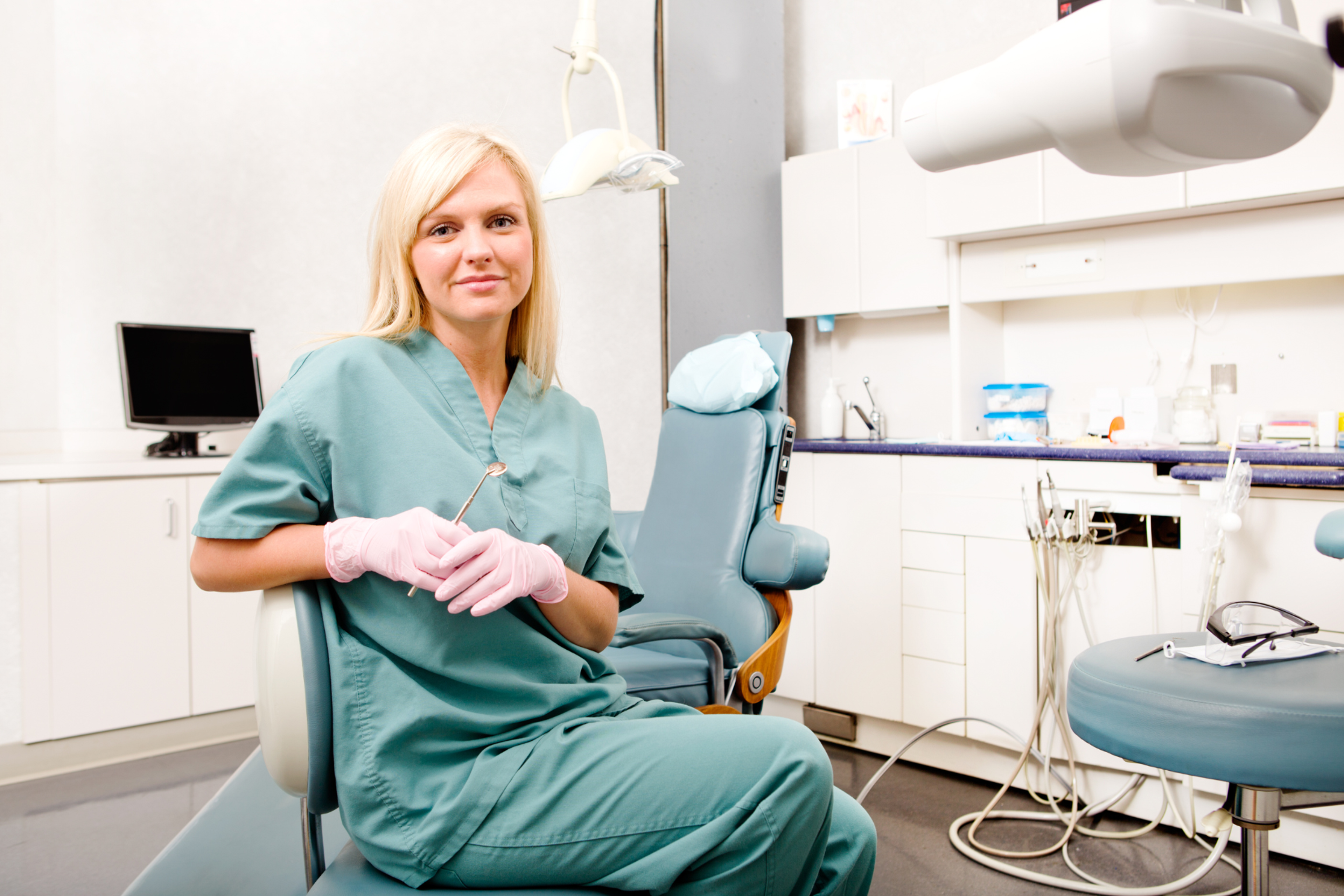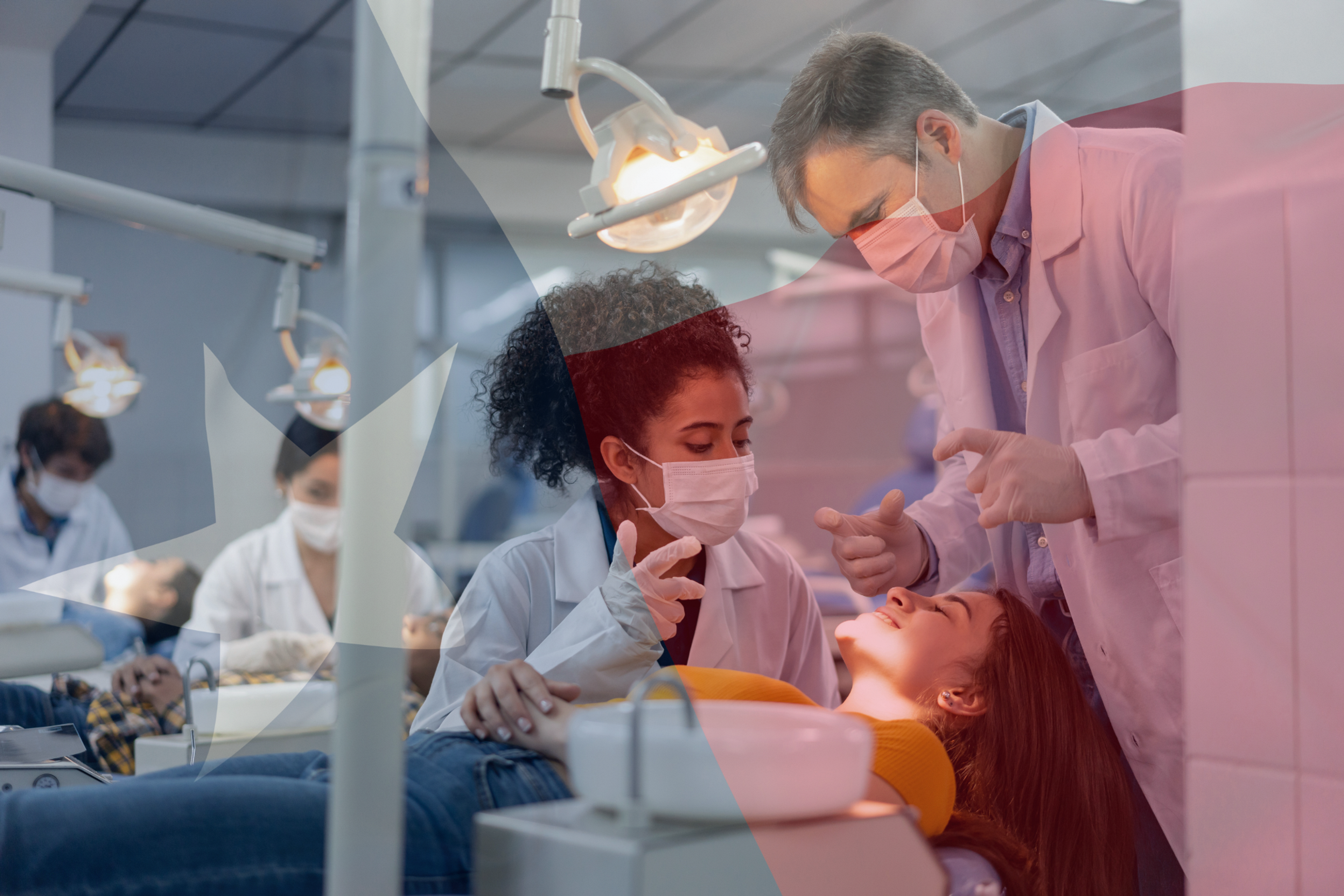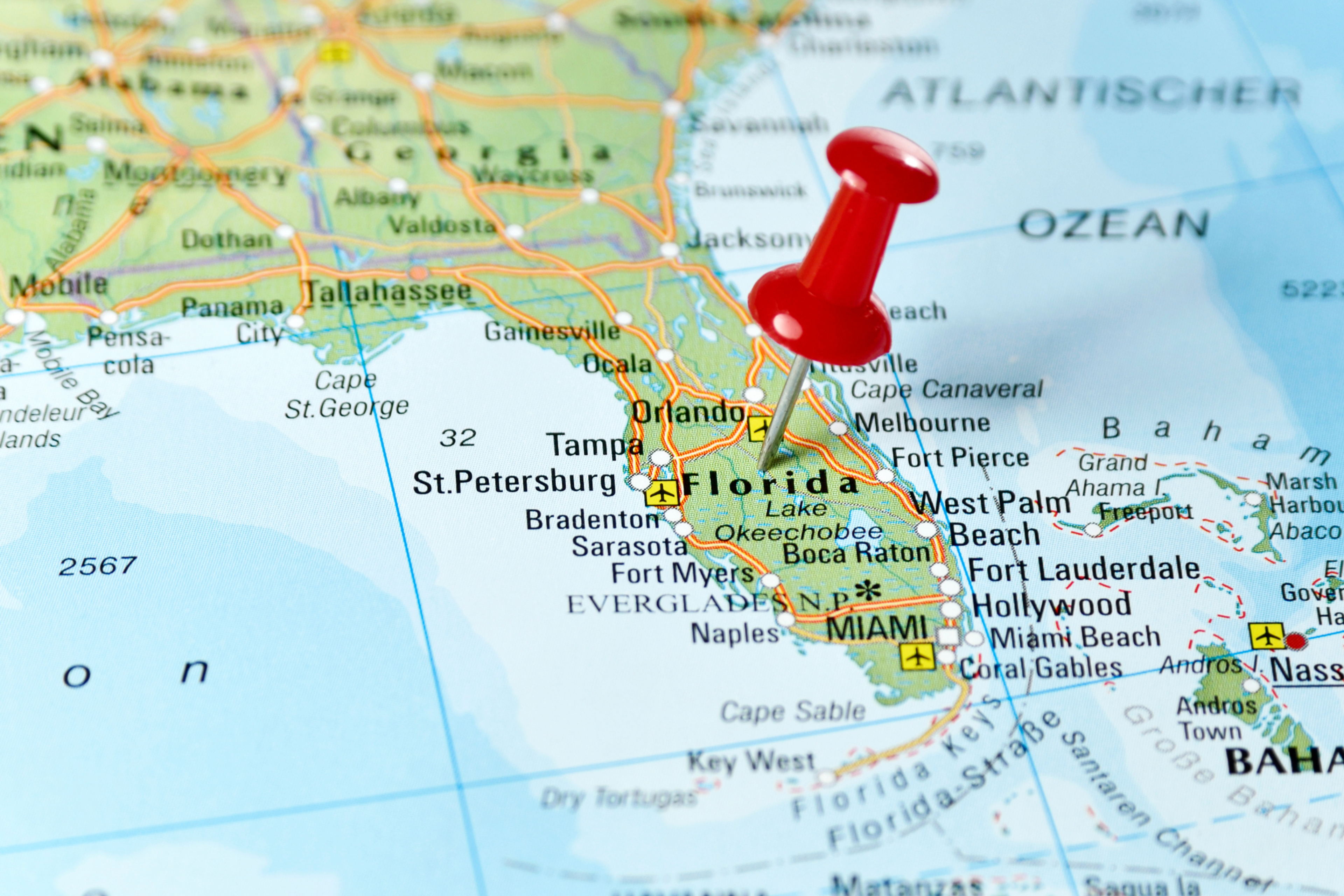Top 10 Prosthodontics Residency Programs (2025)
Discover the best dental schools for prosthodontics with our comprehensive list of the top 10 institutions.
Posted June 13, 2025
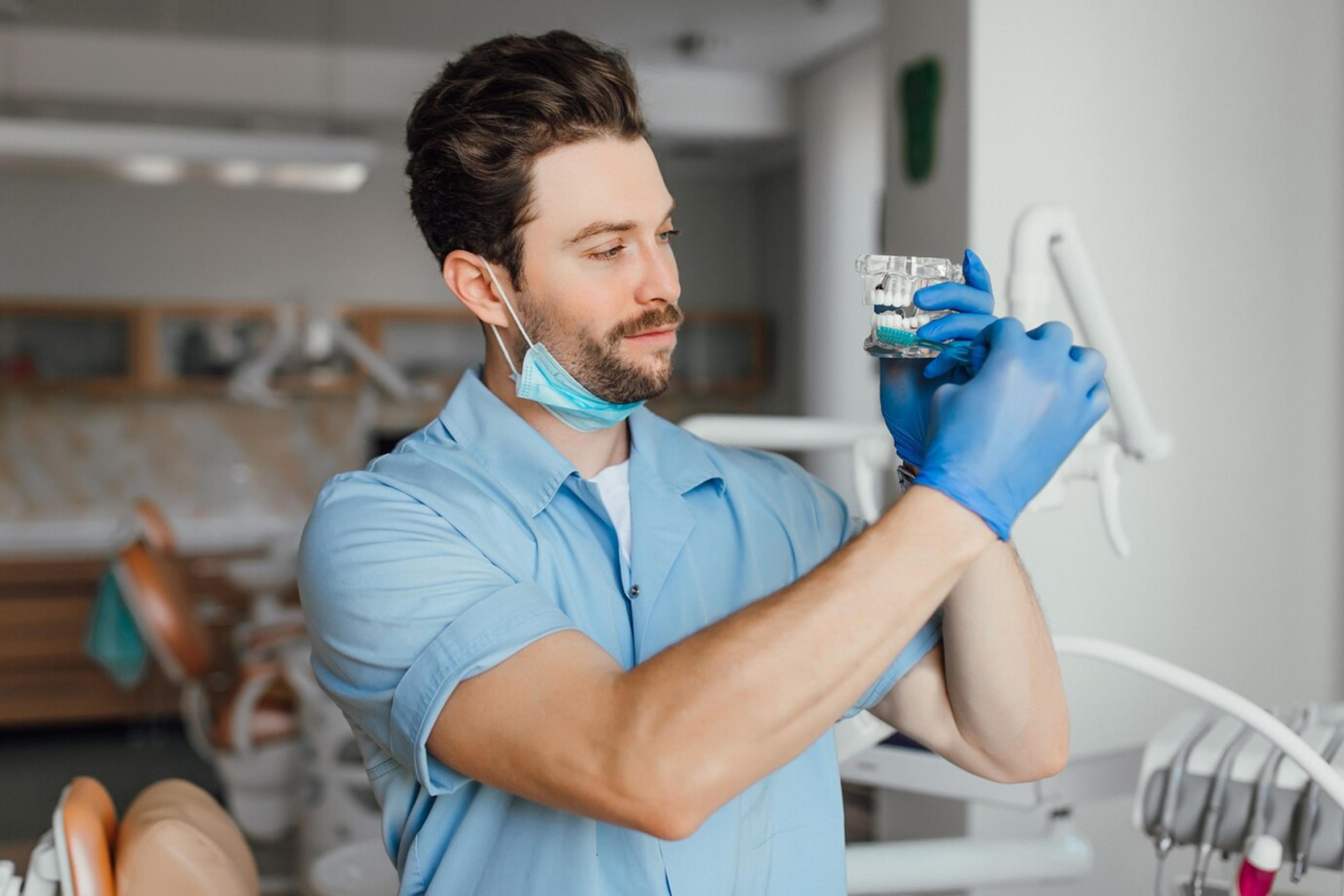
Table of Contents
If you’re looking to take your prosthodontics career to new heights, as many students do, the right residency program can make all the difference. The best prosthodontics residency programs in 2025 are designed to give you hands-on experience, deep clinical training, and the opportunity to contribute to groundbreaking research. Whether you're aiming for a career in private practice, academia, or research, these programs will give you the skills you need to thrive.
Prosthodontics is all about restoring and replacing teeth, from crowns to dentures and implants. An advanced specialty education program in this field will give you a chance to refine your skills in implant prosthodontics, digital dentistry, and restorative treatments. In this guide, I’m breaking down the top 10 programs for 2025, giving you an inside look at which ones stand out and what they have to offer to help you achieve your career goals.
What is a Prosthodontics Residency Program?
A prosthodontics residency program accredited by a specialized accrediting body is a highly specialized postdoctoral training designed to transform dentists into experts in the restoration and replacement of teeth. It is the next crucial step for those who aspire to practice prosthodontics at the highest level, whether in private practice, academia, or clinical research. These programs are typically three years long and provide a well-rounded education that combines hands-on clinical experience, in-depth didactic courses, and valuable research opportunities.
By enrolling in a prosthodontics residency, you're setting yourself up for a career where you'll be at the forefront of restoring function and aesthetics in patients’ smiles. Whether you’re placing implants, designing fixed partial dentures, or managing complex cases like maxillofacial prosthetics, this training ensures you have the technical expertise and advanced knowledge to handle a wide variety of dental challenges, including the preservation of natural teeth.
Key Aspects of a Prosthodontics Residency Program:
- Clinical Experience: One of the primary components of a prosthodontics residency is the extensive clinical experiences you’ll receive, emphasizing comprehensive and interdisciplinary patient care provided through modern clinical facilities. During this phase, you will treat patients with complex dental needs, such as implant placement, fixed partial dentures, removable prosthodontics, and complete dentures. You will also gain proficiency in multidisciplinary treatment planning, collaborating with specialists in areas like periodontics and oral surgery. Your exposure to real-world patient cases will develop your decision-making skills and build your confidence in providing comprehensive, high-quality care.
- Didactic Courses: The theoretical foundation is equally important in shaping a well-rounded prosthodontist. Residency programs include didactic courses that cover a broad range of subjects, including biomedical sciences, restorative dentistry, implant prosthodontics, and maxillofacial prosthetics. These courses are designed to deepen your understanding of the biological and mechanical aspects of prosthodontic treatments. You’ll study the latest research, advances in digital dentistry, and innovations in implant placement to stay ahead in the field.
- Research Projects: Many residency programs include a research component, where you will be required to complete a research project that may lead to contributions in advancing prosthodontic treatment. This project could focus on areas such as implant technology, material science, or prosthodontic techniques. Engaging in research not only hones your analytical skills but also keeps you connected to the evolving field, allowing you to shape future practices.
- Accreditation: A residency program’s accreditation is a crucial factor in ensuring that the program meets high educational standards. Top-tier programs are accredited by the Commission on Dental Accreditation (CODA), a specialized accrediting body recognized by the United States Department of Education. CODA accreditation guarantees that the program adheres to rigorous educational standards and provides residents with a comprehensive, high-quality education that prepares them for board certification and clinical success.
Factors to Consider When Choosing a Prosthodontics Residency Program
1. Dental Accreditation
The accreditation of a residency program is crucial. Make sure the program is accredited by a specialized accrediting body such as the Commission on Dental Accreditation (CODA), which is recognized by the United States Department of Education and can be verified at the commission's web address. CODA accreditation ensures that the program meets high educational standards, offering a comprehensive, quality education that will prepare you for board certification and a successful career in prosthodontics. Accredited programs provide a structured, standardized training experience that aligns with industry expectations and practices. Some programs may receive accreditation with 'approval without reporting requirements,' indicating a specific standing with the accrediting body.
2. Curriculum and Training
A strong residency program must offer a well-rounded curriculum that includes both clinical experience and didactic courses. Look for programs that provide specialized training in essential areas like implant prosthodontics, prosthodontic treatment planning, and biomedical sciences. The program should offer courses that cover the latest techniques in digital dentistry and advancements in restorative treatments. Advanced specialty education programs in prosthodontics require a minimum of 34 months of specialized training, covering essential aspects such as disease risk assessment and the latest advancements in digital dentistry. A comprehensive curriculum ensures that you gain expertise in all aspects of prosthodontic care, from diagnosis and treatment planning to the implementation of the latest technologies.
Key Considerations:
- Does the program offer advanced training in both fixed and removable prosthodontics?
- Does it incorporate digital dentistry into the training curriculum?
- How does the program balance clinical practice with theoretical learning?
3. Clinical Experience and Facilities
Hands-on clinical experience is an essential part of any prosthodontics residency. The program should provide access to clinical settings equipped with an intraoral camera where you can treat patients with complex prosthodontic needs, including implant placement, full mouth restorations, and treatment of edentulous patients. Ensure that the program has a diverse patient base and that you’ll have opportunities to manage a wide range of cases across various clinical settings.
The availability of state-of-the-art technology is another critical factor. Modern tools like intraoral cameras, digital scanners, and CAD/CAM systems are essential in today’s prosthodontic practice. Make sure the program provides access to these technologies, as they will not only enhance your clinical skills but also prepare you for a future in digital dentistry.
Key Considerations:
- Are there rotations in both hospital and private practice settings?
- Does the program provide exposure to cutting-edge technology such as digital impressions and 3D printing?
- What kind of facilities and clinical settings will you have access to during your residency?
4. Program Director and Faculty
The program director and faculty members are integral to your education and growth during the residency. Look for programs with a program director who has extensive experience in both clinical prosthodontics and prosthodontic research. Often, the program director holds qualifications such as DDS, MS, which play a crucial role in ensuring the program's commitment to clinical excellence and education in prosthodontics. The faculty should include experts who are actively involved in prosthodontic practice and academic research. Top programs often feature faculty members who are leaders in the field, providing opportunities for mentorship and guidance throughout your residency.
Key Considerations:
- What is the faculty’s track record in clinical prosthodontics and research?
- Are the faculty members active in advancing prosthodontic techniques and technologies?
- Does the program offer opportunities for mentorship and academic guidance from experienced faculty?
5. Research Opportunities
Many prosthodontics residency programs include a research component that allows residents to engage in meaningful research projects. These projects often focus on areas such as implant prosthodontics, prosthodontic treatment, or digital dentistry. Participating in research not only enhances your learning experience but also contributes to the advancement of prosthodontic science, which is crucial for achieving specialty certification. Some programs offer opportunities to publish papers or present at national and international conferences, which can help build your reputation in the field.
Graduates of these programs have received national and international accolades for their research contributions, emphasizing the program's support for students through mentoring, research funding, and access to advanced resources.
Research opportunities are especially valuable if you plan to pursue an academic career or contribute to innovations in prosthodontics. Programs that emphasize evidence-based practice and encourage residents to engage in clinical research are likely to offer the most enriching experiences.
Key Considerations:
- Does the program encourage or require you to complete a research project?
- Are there opportunities to engage in prosthodontic research that could contribute to the field?
- Are there publication or presentation opportunities at conferences?
Top 10 Prosthodontics Residency Programs for 2025
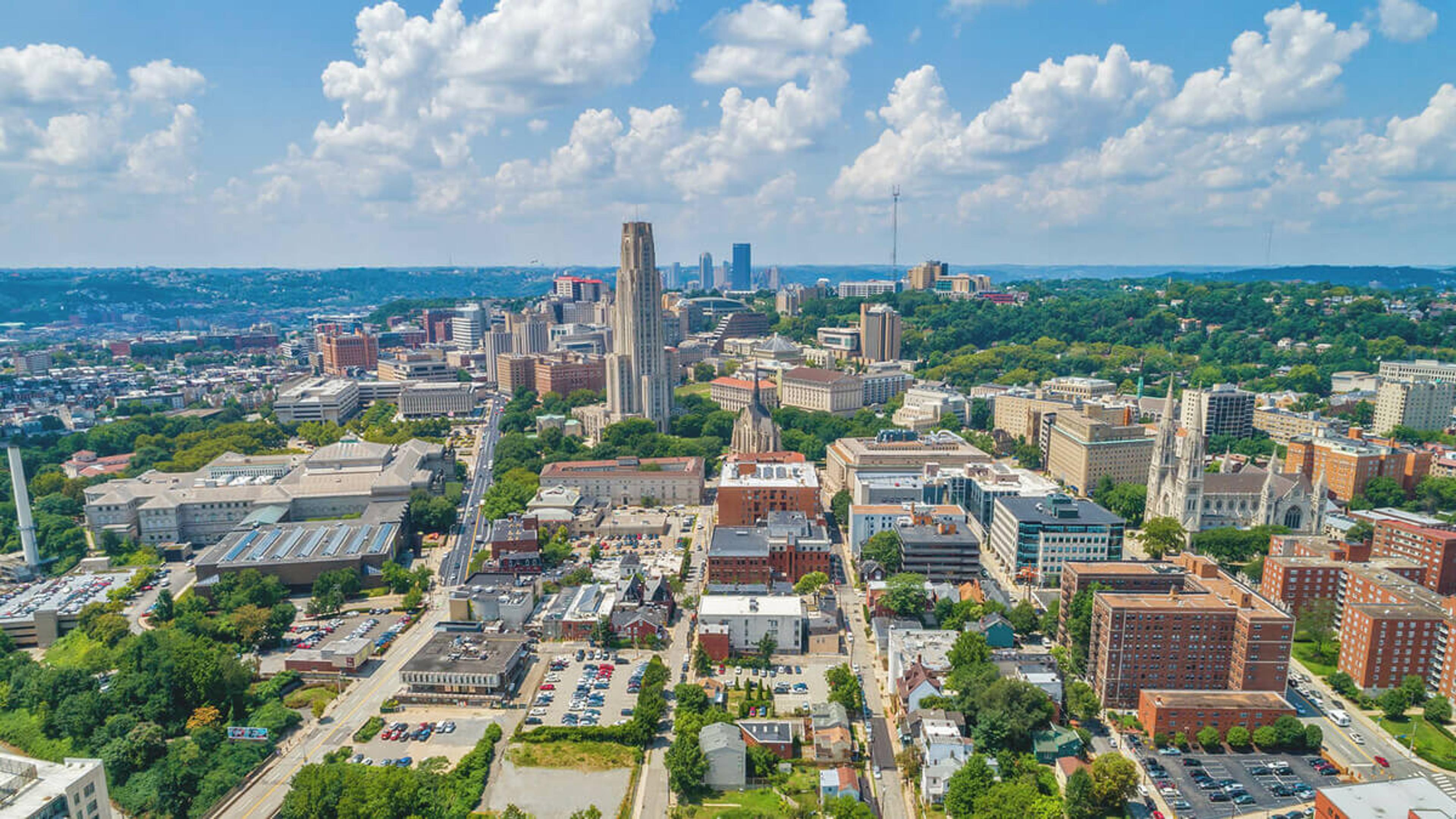
1. University of Pittsburgh - School of Dental Medicine
The University of Pittsburgh’s Advanced Education & Residency Program in Prosthodontics stands out for its strong clinical training, comprehensive curriculum, and research opportunities. This program is accredited by the Commission on Dental Accreditation (CODA) and offers a three-year certificate program with an option to earn a Master of Dental Science (MDS) degree. The program prepares residents to manage complex prosthodontic cases, providing a solid foundation in implant prosthodontics, restorative dentistry, and biomedical sciences.
Key Features
- Accreditation: CODA, ensuring that the program adheres to high educational standards.
- Clinical Experience: Residents manage patients requiring treatments like implant placement, complete dentures, and fixed partial dentures.
- Research: The program integrates clinical research, encouraging residents to engage in studies that contribute to advancements in prosthodontics.
- Master’s Option: Residents can complete additional didactic courses to earn a Master’s degree alongside their certificate.
- Research Opportunities: Residents are encouraged to engage in scholarly activities and submit research papers, contributing to the growing field of prosthodontic treatment.
- Specialized Training: The curriculum includes training in implant prosthodontics, maxillofacial prosthetics, biomaterials, and digital dentistry.
Application Process
- Deadline: Applications are due by October 1 of the preceding year.
- Application Fee: A non-refundable $75 supplemental fee is required at the time of application.
- Application Platforms: The program accepts applications through the ADEA Postdoctoral Application Support Service (PASS) and the Postdoctoral Dental Matching Program (MATCH).
To learn more about the program and apply, please visit the University of Pittsburgh School of Dental Medicine Prosthodontics Program.
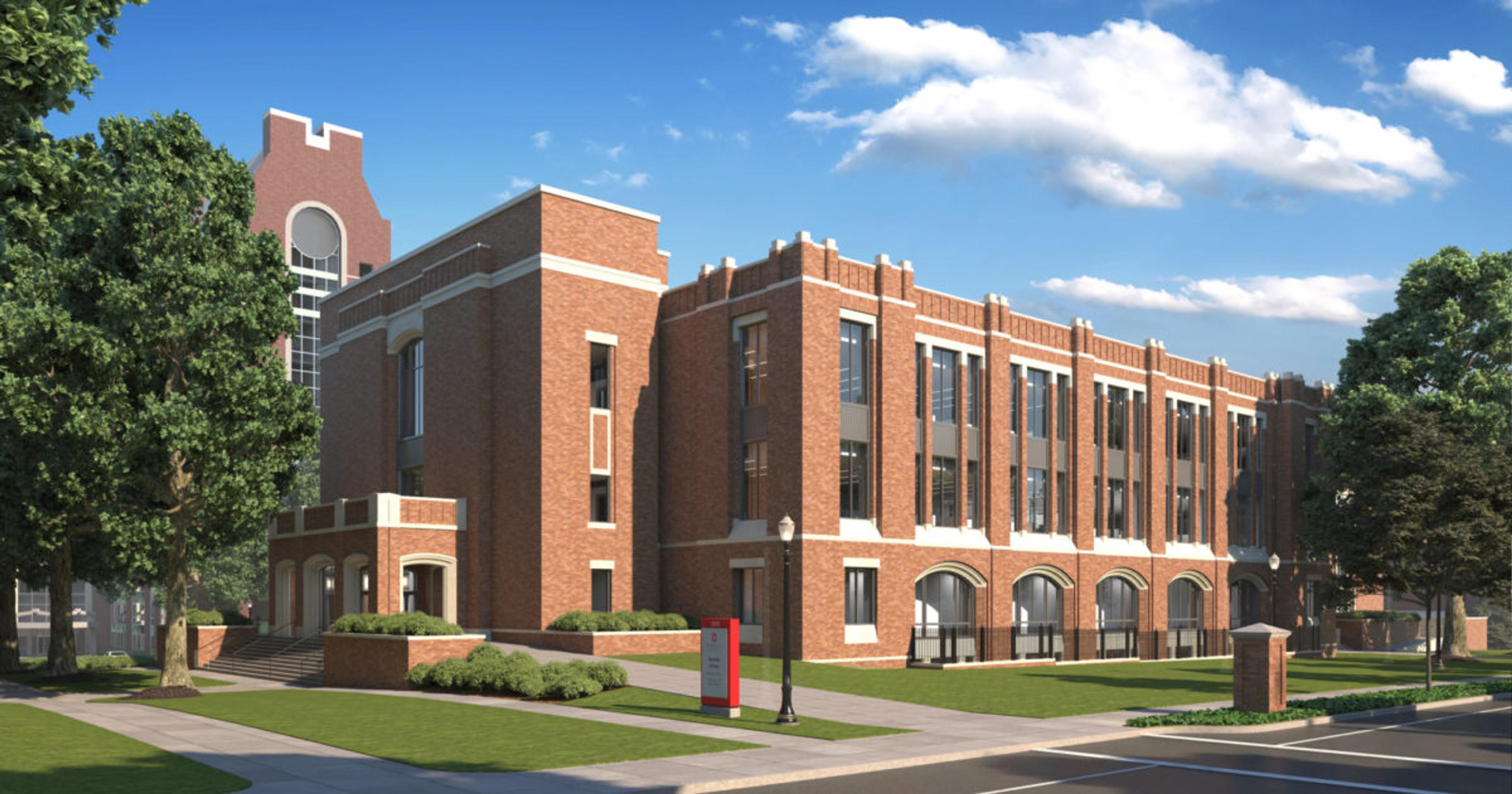
2. Ohio State University - College of Dentistry
Ohio State University’s Advanced Prosthodontics Residency Program is designed to equip residents with the skills necessary to excel in clinical prosthodontics. This program is accredited by the Commission on Dental Accreditation (CODA) and offers a 36-month residency, granting both a Master of Science (MS) and a certificate in prosthodontics. The program prepares residents for careers in private practice, academia, and research, and provides them with a strong foundation in implant prosthodontics, fixed prosthodontics, and restorative dentistry.
Key Features
- Accreditation: CODA, ensuring that the program meets high educational and clinical standards.
- Clinical Experience: Residents are exposed to a wide range of clinical cases, including implant placement, fixed partial dentures, and maxillofacial prosthetics. Residents manage complex cases, from treatment planning to execution.
- Research: The program integrates research opportunities, encouraging residents to engage in prosthodontic research and contribute to advancements in the field.
- Master’s Option: Residents earn both an MS degree and a prosthodontics certificate, offering comprehensive training in prosthodontic practice and research.
- Specialized Training: The curriculum includes advanced training in digital dentistry, biomaterials, and multidisciplinary treatment planning, ensuring residents are prepared for modern prosthodontic practice.
Application Process
- Deadline: Applications are due by October 1 of the preceding year.
- Application Fee: A non-refundable application fee is required at the time of submission.
- Application Platforms: The program accepts applications through the ADEA Postdoctoral Application Support Service (PASS) and the Postdoctoral Dental Matching Program (MATCH).
- Research Focus: Residents are encouraged to participate in ongoing research projects related to implant prosthodontics and digital dentistry.
- Opportunities for publication and presentation at national conferences contribute to the academic and professional growth of residents.
To learn more about the program and apply, please visit the Ohio State University College of Dentistry Prosthodontics Program.
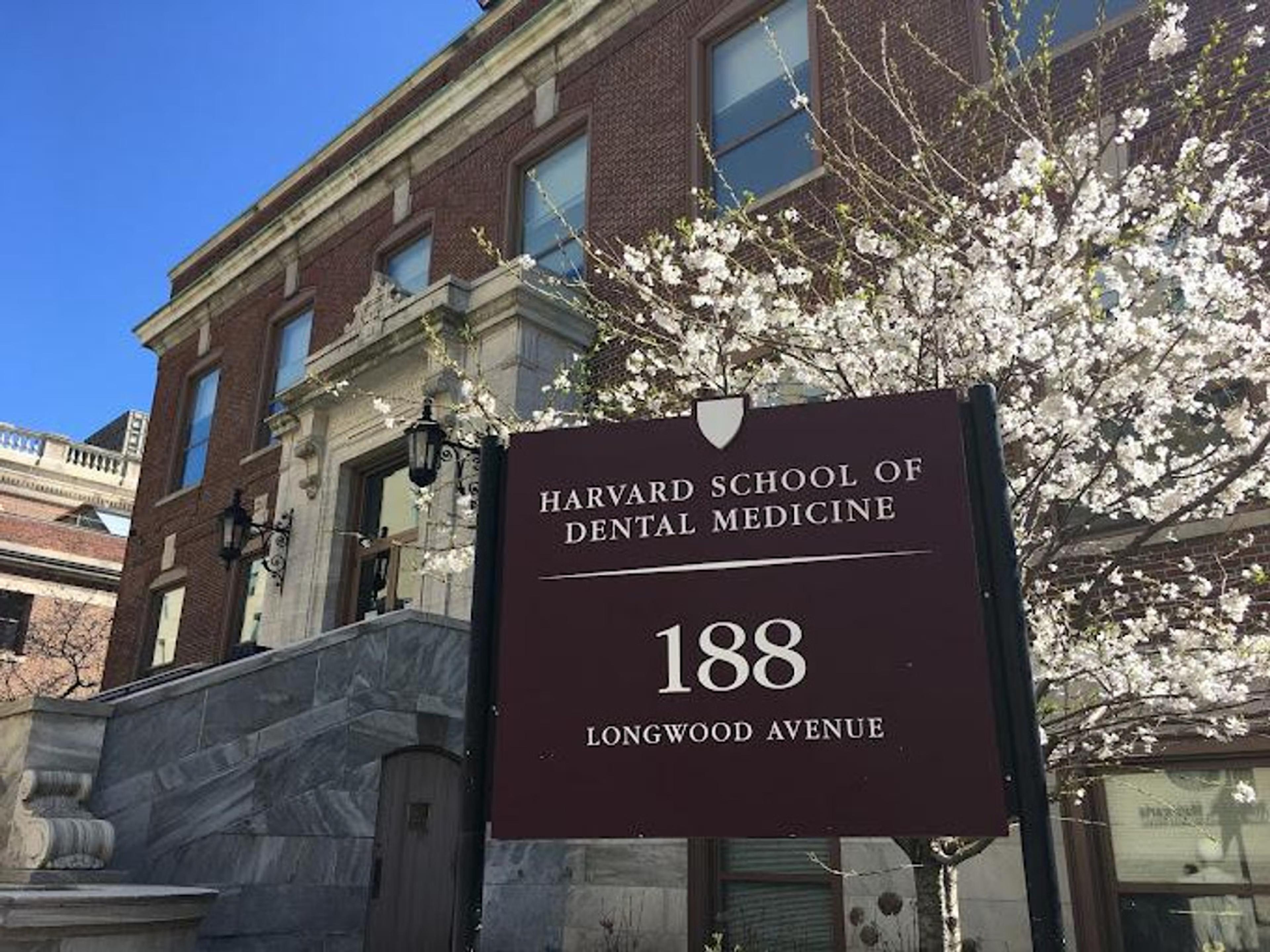
3. Harvard School of Dental Medicine
Harvard School of Dental Medicine’s Advanced Graduate Program in Prosthodontics stands out for its comprehensive approach to training future leaders in prosthodontics. This highly selective program offers a unique blend of clinical practice, advanced didactic courses, and research opportunities. Residents are trained to handle complex prosthodontic cases, including implant prosthodontics, restorative dentistry, and maxillofacial prosthetics, while earning both an MMSc degree in oral biology and a certificate in prosthodontics. Additionally, an optional DMSc degree can be pursued for those interested in academic careers or research.
Key Features
- Accreditation: CODA, ensuring the program adheres to high standards in both clinical training and academic rigor.
- Clinical Experience: Residents manage a wide variety of complex prosthodontic cases, including implant placement, crown and bridge work, and removable prosthodontics.
- Research Opportunities: The program emphasizes research, encouraging residents to engage in scholarly activities that contribute to advancements in prosthodontics.
- Master’s and Doctorate Options: The MMSc degree is awarded upon completion of the program, with an optional DMSc for those pursuing academic careers.
- Specialized Training: Residents receive training in digital dentistry, biomaterials, prosthodontic treatment planning, and multidisciplinary treatment approaches.
Application Process
- Deadline: Applications are typically due in early fall (refer to the Harvard School of Dental Medicine website for specific dates).
- Application Fee: A non-refundable application fee is required.
- Application Platforms: The program accepts applications through the ADEA Postdoctoral Application Support Service (PASS).
To learn more about the program and apply, please visit the Harvard School of Dental Medicine Prosthodontics Program.
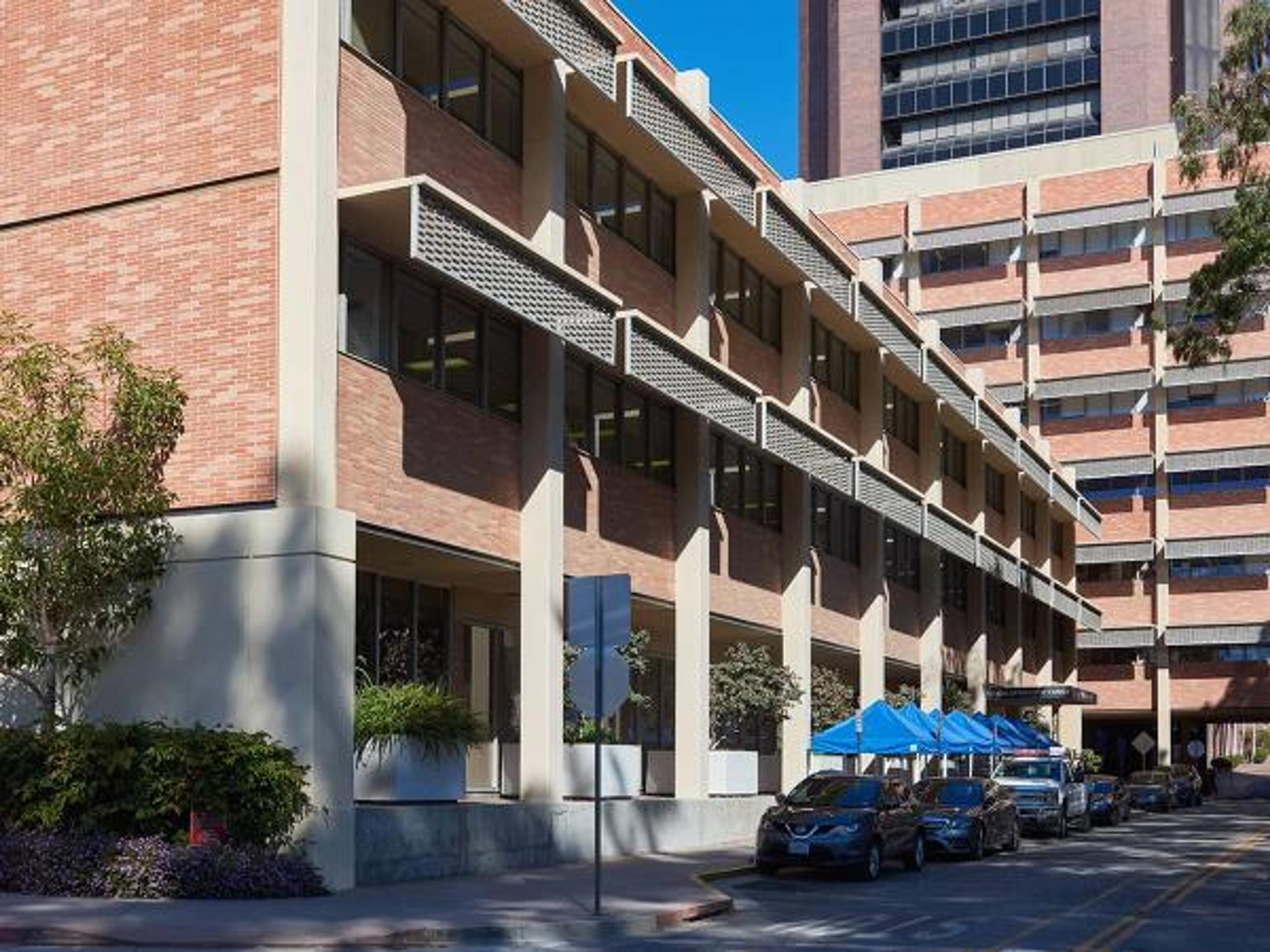
4. University of California, Los Angeles (UCLA)
The University of California, Los Angeles (UCLA) offers an exceptional Advanced Prosthodontics Residency Program that prepares residents to excel in the field of prosthodontics. The program, accredited by the Commission on Dental Accreditation (CODA), is designed to provide residents with extensive clinical training, a robust didactic curriculum, and research opportunities, preparing them for careers in private practice, academia, or research. UCLA's prosthodontics program emphasizes implant prosthodontics, restorative dentistry, and maxillofacial prosthetics, offering residents the opportunity to work with diverse patient populations and cutting-edge technologies.
Key Features
- Accreditation: CODA accreditation ensures the program adheres to the highest standards of dental education.
- Clinical Experience: Residents gain hands-on experience in implant placements, restorative treatments, and maxillofacial prosthetics, providing a comprehensive approach to prosthodontic care.
- Research Opportunities: The program encourages residents to engage in clinical research, with a focus on dental implant therapy, nanotechnology, and bone regeneration.
- Specialized Training: The curriculum includes training in digital dentistry, biomaterials, and multidisciplinary treatment planning, giving residents a well-rounded education in the latest prosthodontic techniques.
Application Process
- Deadline: The program has specific application deadlines; be sure to check UCLA’s website for the latest updates.
- Application Fee: A non-refundable application fee is required.
- Application Platforms: The program accepts applications through the ADEA Postdoctoral Application Support Service (PASS).
To learn more about the program and apply, please visit the UCLA School of Dentistry Prosthodontics Program.
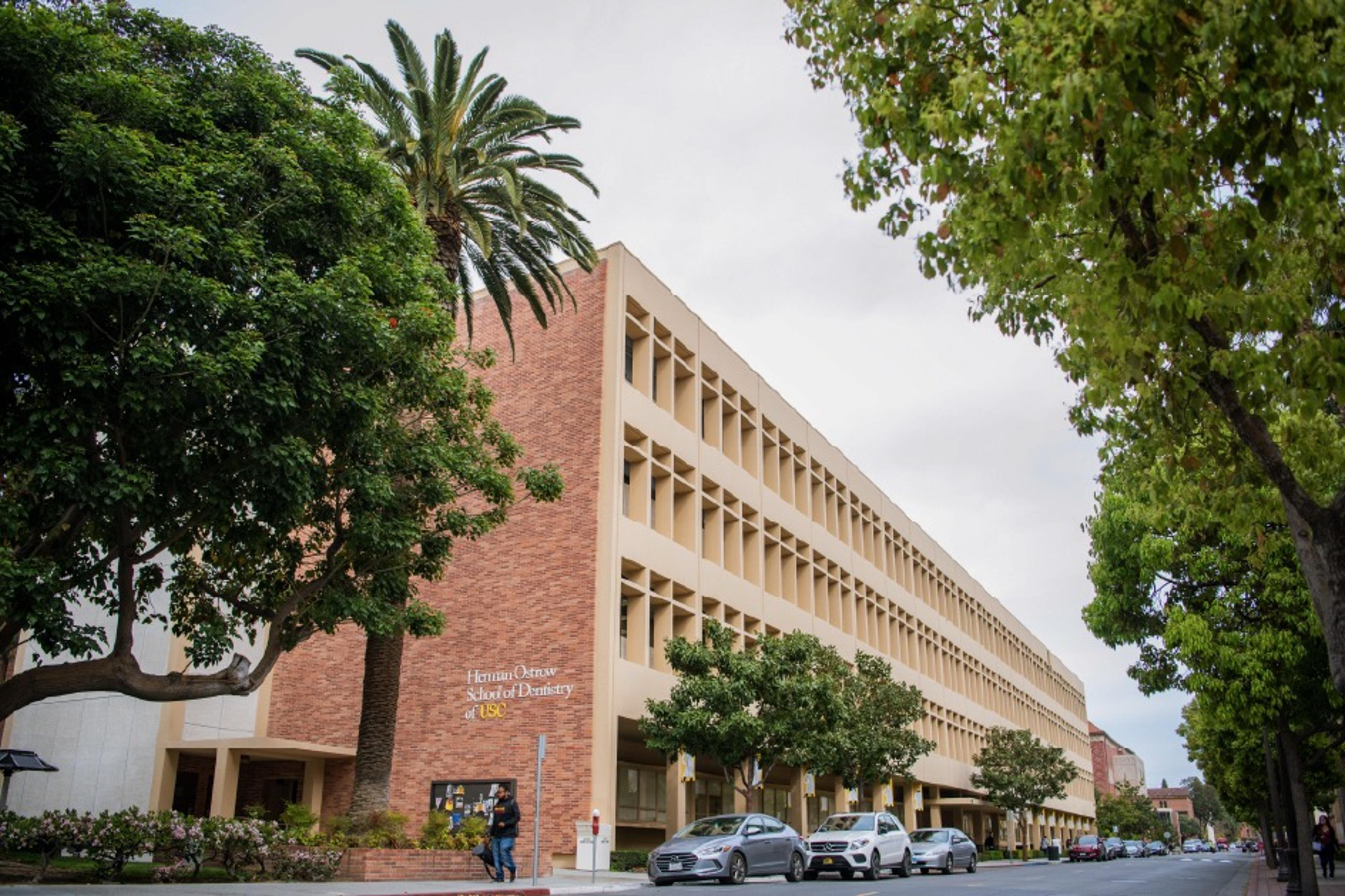
5. University of Southern California (USC) - Herman Ostrow School of Dentistry
The Advanced Prosthodontics Residency Program at the University of Southern California (USC) is designed to provide residents with extensive training in prosthodontics and prepare them for leadership roles in clinical practice, research, or academia. The program, accredited by the Commission on Dental Accreditation (CODA), offers a 36-month curriculum that combines didactic courses, hands-on clinical training, and research opportunities. The program provides a Master’s degree (MMSc) and a certificate in prosthodontics upon completion. USC’s program is known for its evidence-based approach, its integration of CAD/CAM technology, and its focus on multidisciplinary care.
Key Features
- Accreditation: CODA-accredited, ensuring the program meets high standards in clinical and academic training.
- Clinical Experience: Residents treat patients requiring complex prosthodontic treatments, such as dental implants, fixed and removable prosthodontics, and maxillofacial prosthetics.
- Research Opportunities: The program emphasizes research, with opportunities to engage in clinical studies and contribute to advancements in prosthodontics, particularly in implant dentistry and nanotechnology.
- Technology Integration: Extensive use of CAD/CAM technology in the treatment of patients, ensuring residents are trained in the latest prosthodontic techniques.
- Interdisciplinary Care: The program encourages collaboration with other dental specialties, fostering a team approach to patient care.
- Master’s Option: Residents can earn a Master’s degree (MMSc) in addition to their prosthodontic certificate, offering a more comprehensive education.
Application Process
- Deadline: Applications are due by November 1 (PASS deadline).
- Application Fee: An $85 non-refundable application fee is required ($145 for international applicants).
- Application Platforms: The program uses the ADEA Postdoctoral Application Support Service (PASS) for applications.
To learn more about the program and apply, please visit the USC Herman Ostrow School of Dentistry Prosthodontics Program.
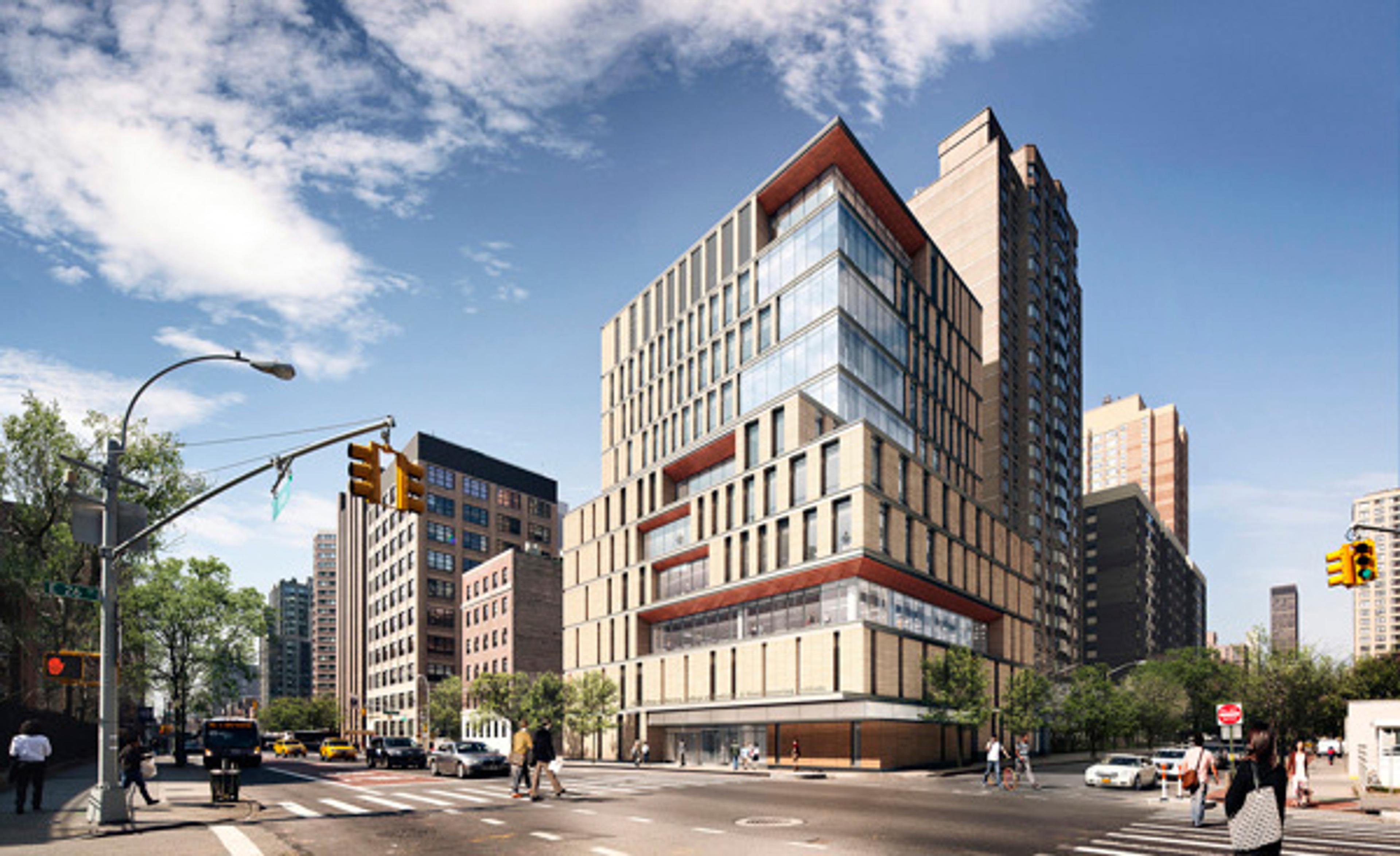
6. New York University (NYU) College of Dentistry
The Advanced Education Program in Prosthodontics at New York University (NYU) provides residents with world-class training in the field of prosthodontics, emphasizing both clinical practice and academic excellence. This three-year program offers comprehensive education in the restoration and replacement of teeth using cutting-edge techniques. With a focus on implant prosthodontics, digital dentistry, and maxillofacial prosthetics, NYU equips residents with the skills necessary to address a wide variety of complex prosthodontic cases.
Key Features
- Accreditation: The program is CODA-accredited, ensuring that it adheres to the highest standards of dental education and meets the American Board of Prosthodontics requirements. It is also recognized by the American College of Prosthodontists, emphasizing the importance of specialized training and accreditation for prospective residents.
- Clinical Experience: NYU residents treat a broad range of complex prosthodontic cases, including implant placement, restorative procedures, complete dentures, and removable prosthodontics.
- Research Opportunities: Residents have access to research programs in areas like implant therapy, nanotechnology, and bone regeneration, providing opportunities to contribute to the latest advancements in the field.
- Interdisciplinary Care: The program offers extensive interdisciplinary collaboration with other specialties, including orthodontics, periodontics, and oral surgery, to ensure well-rounded patient care.
- Digital Dentistry: Residents receive training in CAD/CAM systems, including ExoCAD, 3Shape, and Z-brush, alongside hands-on experience with intraoral scanners and 3D printing technology.
Application Process
- Deadline: The application deadline for the program is August 1st of each year.
- Application Fee: A non-refundable $100 supplemental fee is required.
- Application Platforms: The program uses the Postdoctoral Application Support Service (PASS) and the Postdoctoral Dental Matching Program (MATCH).
To learn more about the program and apply, please visit the NYU College of Dentistry Prosthodontics Program.
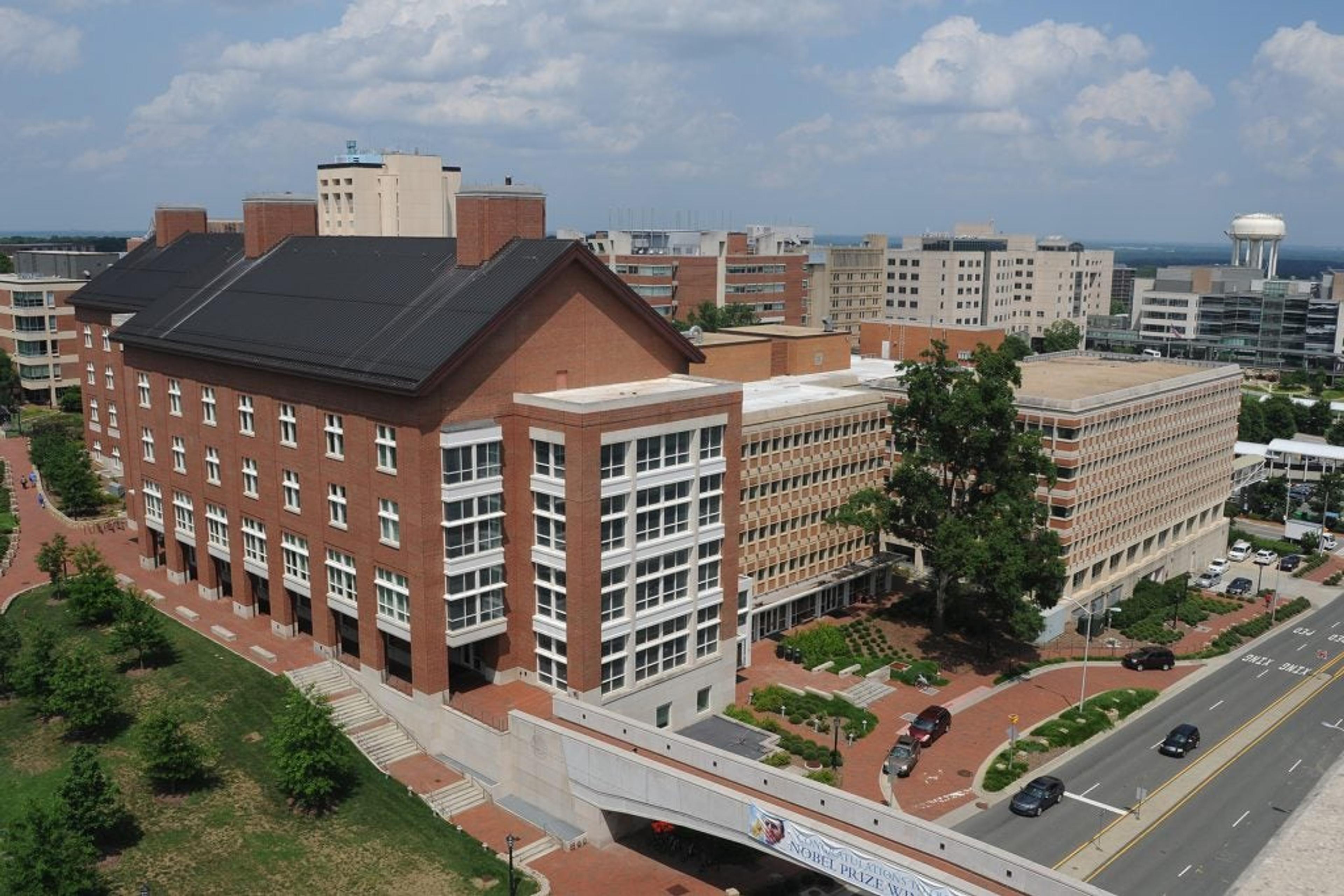
7. University of North Carolina at Chapel Hill – Adams School of Dentistry
The Graduate Program in Prosthodontics at the University of North Carolina at Chapel Hill (UNC) provides a robust and comprehensive education, focusing on the restoration and replacement of teeth and the improvement of oral and maxillofacial esthetics. This three-year program leads to both a Certificate in Prosthodontics and a Master of Science (MS) degree. The program emphasizes a multidisciplinary approach to patient care and integrates the latest technological advancements in digital dentistry and CAD/CAM systems, preparing residents for a career in clinical practice, research, or teaching.
Key Features
- Accreditation: The program is fully accredited by the Council on Dental Education of the American Dental Association (CODA), ensuring that it meets the highest standards of dental education and prepares residents for certification by the American Board of Prosthodontics.
- Clinical Experience: Residents gain extensive hands-on experience in treating patients with complex prosthodontic needs, such as implant placement, fixed prosthodontics, removable prosthodontics, and maxillofacial prosthetics.
- Research Opportunities: Residents are required to complete an independent research project that addresses issues critical to prosthodontic treatment. Research is integrated into the curriculum, and students are encouraged to publish their findings and engage in clinical and biomedical research.
- Technological Training: UNC’s program provides training in digital dentistry, including the use of CAD/CAM technology, 3D printing, and intraoral scanning, which are increasingly important in modern prosthodontic practice.
- Interdisciplinary Collaboration: Residents work closely with faculty and students from other dental specialties, including periodontics and orthodontics, allowing for comprehensive treatment planning and case management.
- Licensure and Certification Preparation: The program is specifically designed to prepare students for licensure and certification requirements, ensuring that graduates have the necessary qualifications to practice in their respective fields.
For more information about the program and to apply, please visit the University of North Carolina at Chapel Hill – Adams School of Dentistry Prosthodontics Program.
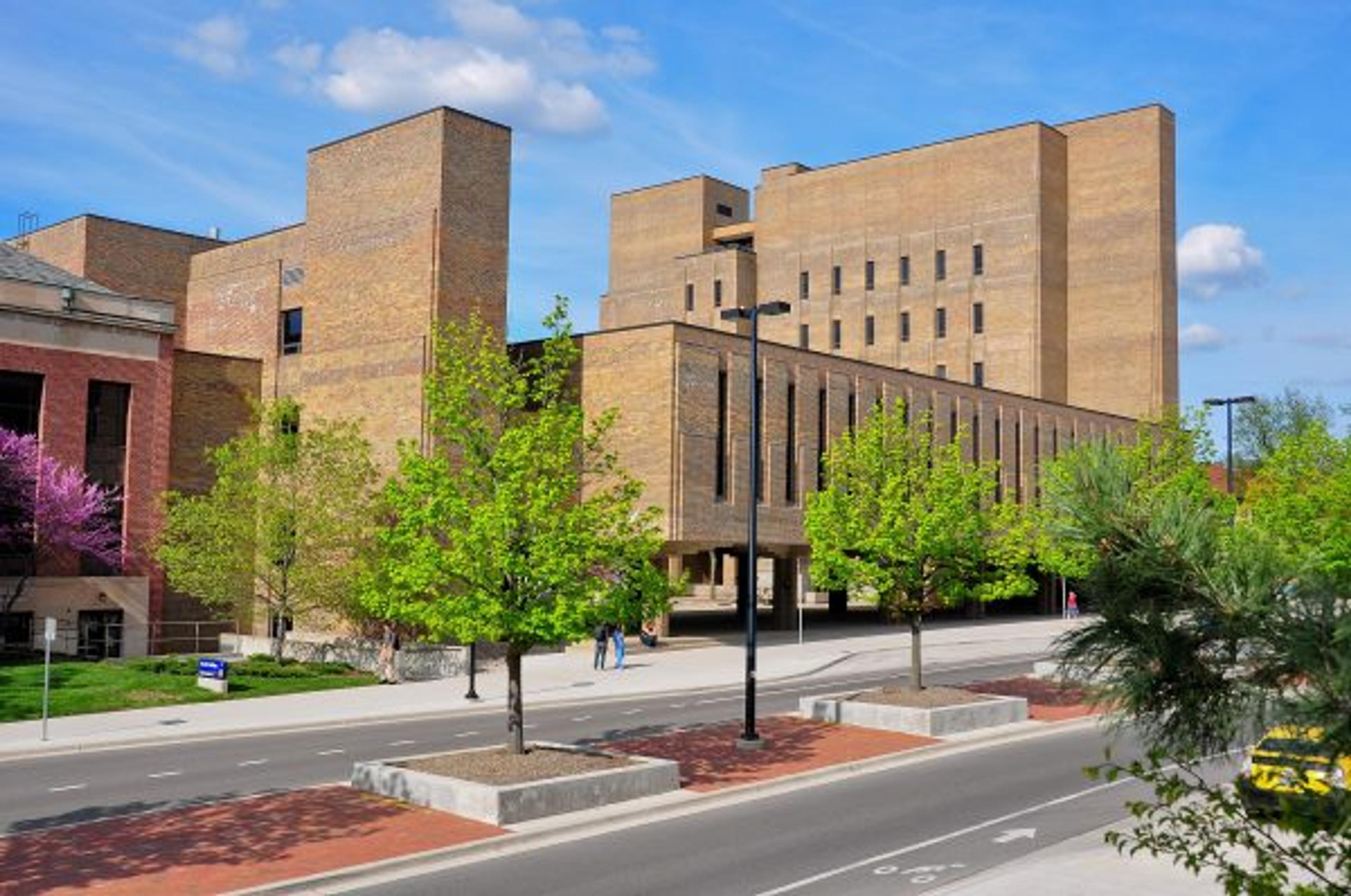
8. University of Michigan School of Dentistry – Prosthodontics Graduate Program (MS)
The University of Michigan School of Dentistry offers an exceptional three-year Prosthodontics Graduate Program, leading to a Master of Science (MS) degree and a certificate in prosthodontics. This program prepares residents to become experts in the field, with a focus on complex interdisciplinary dental treatment, including implant placement and advanced restorative techniques. The program emphasizes the integration of digital dentistry and cutting-edge technologies in all aspects of care, preparing residents for both clinical practice and academic leadership.
Key Features
- Accreditation: The program is accredited by the American Dental Association’s Commission on Dental Accreditation (CODA), ensuring the program meets high educational standards and prepares residents for the American Board of Prosthodontics certification.
- Comprehensive Curriculum: The program includes didactic courses in biomedical sciences, oral pathology, pharmacology, and research methods. Specialized courses cover advanced topics like implant prosthodontics, digital dentistry, maxillofacial prosthetics, and biomaterials.
- Clinical Experience: Residents treat patients with complex prosthodontic needs, including fixed and removable prosthodontics, implant-supported restorations, and maxillofacial prosthetics. The clinical training incorporates the latest CAD/CAM technologies and emphasizes interdisciplinary care, offering a diverse range of patient cases.
- Research Component: The program requires all residents to complete an independent research project, which will contribute to the field of prosthodontics. This project is an essential part of earning the MS degree and is designed to foster evidence-based decision-making in clinical practice.
- Master’s Option: In addition to the certificate, residents can earn a Master of Science (MS) degree, providing them with a broader educational foundation in oral biology and related fields.
Application Process
- Application Deadline: September 1st of the preceding year.
- Application Platforms: The program accepts applications via the Postdoctoral Application Support Service (PASS) and the Postdoctoral Dental Matching Program (MATCH).
For more information on the program and to apply, please visit the University of Michigan School of Dentistry Prosthodontics Graduate Program.
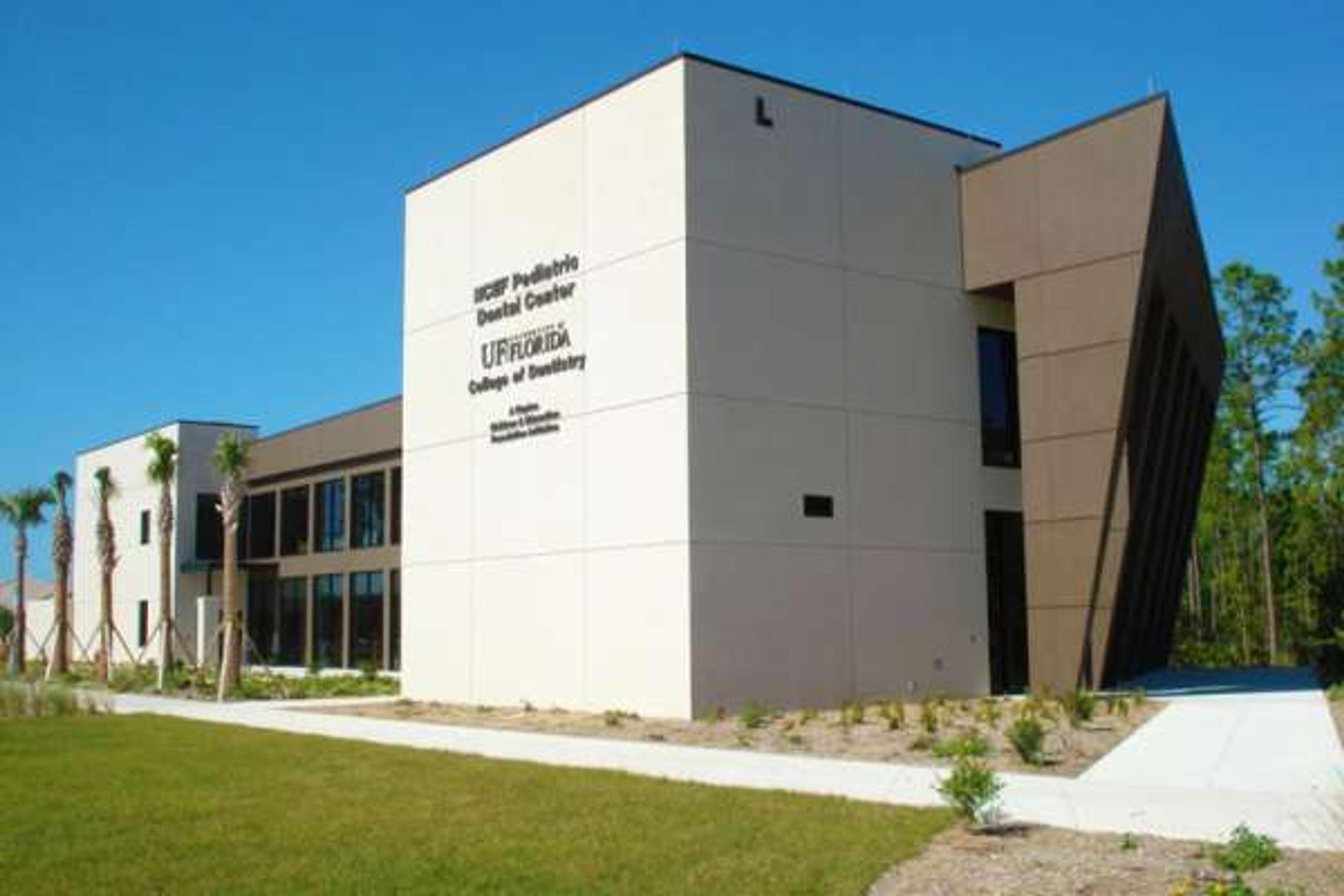
9. University of Florida – Advanced Education in Prosthodontics (MS)
The University of Florida offers a comprehensive 36-month Prosthodontics Graduate Program, leading to both a Master of Science in Dental Sciences (MS) and a Certificate in Prosthodontics. This program provides a robust, interdisciplinary approach to diagnosis, treatment planning, and patient care with a focus on complex oral rehabilitative treatments. It integrates implant prosthodontics, maxillofacial prosthetics, fixed and removable prosthodontics, and digital dentistry, all while preparing residents for certification by the American Board of Prosthodontics.
Key Features
- Accreditation: Fully accredited by the American Dental Association’s Commission on Dental Accreditation (CODA). This ensures that the program meets the highest educational standards and prepares residents to become certified prosthodontists.
- Comprehensive Curriculum: The program includes a variety of didactic courses in oral pathology, biostatistics, pharmacology, craniofacial biology, and biomaterials. Specialized courses are offered in prosthodontics, dental materials, and implants, ensuring residents receive a deep, well-rounded education.
- Clinical Experience: Residents engage in extensive hands-on clinical training in implant restoration, complete and partial dentures, prosthodontic treatment planning, and maxillofacial prosthetics. The program boasts access to a diverse patient population, allowing residents to treat complex cases and practice advanced procedures.
- Research Project: All residents are required to complete a research project, which is a key component of the program. This project allows residents to engage in original research that contributes to the advancement of prosthodontics, culminating in a formal report instead of a traditional thesis.
- Digital Dentistry and Technology: The program emphasizes the use of the latest technologies in digital dentistry, including CAD/CAM systems, intra-oral scanners, and 3D printing. Residents are trained in these technologies to stay at the forefront of the evolving field of prosthodontics.
- Stipend and Financial Support: The program offers a stipend for residents, helping to offset living expenses during their studies. Tuition rates are set by the University of Florida annually.
Application Process
- Application Deadline: September 1 for the next academic year.
- Application Platforms: Applicants must apply through the Postdoctoral Application Support Service (PASS) and the Postdoctoral Dental Matching Program (MATCH). A supplemental $100 non-refundable fee is required, along with additional application materials.
For more information on the program and how to apply, visit the University of Florida College of Dentistry Prosthodontics Graduate Program.
For any inquiries or additional information, prospective students can contact the program directly through the provided contact details.
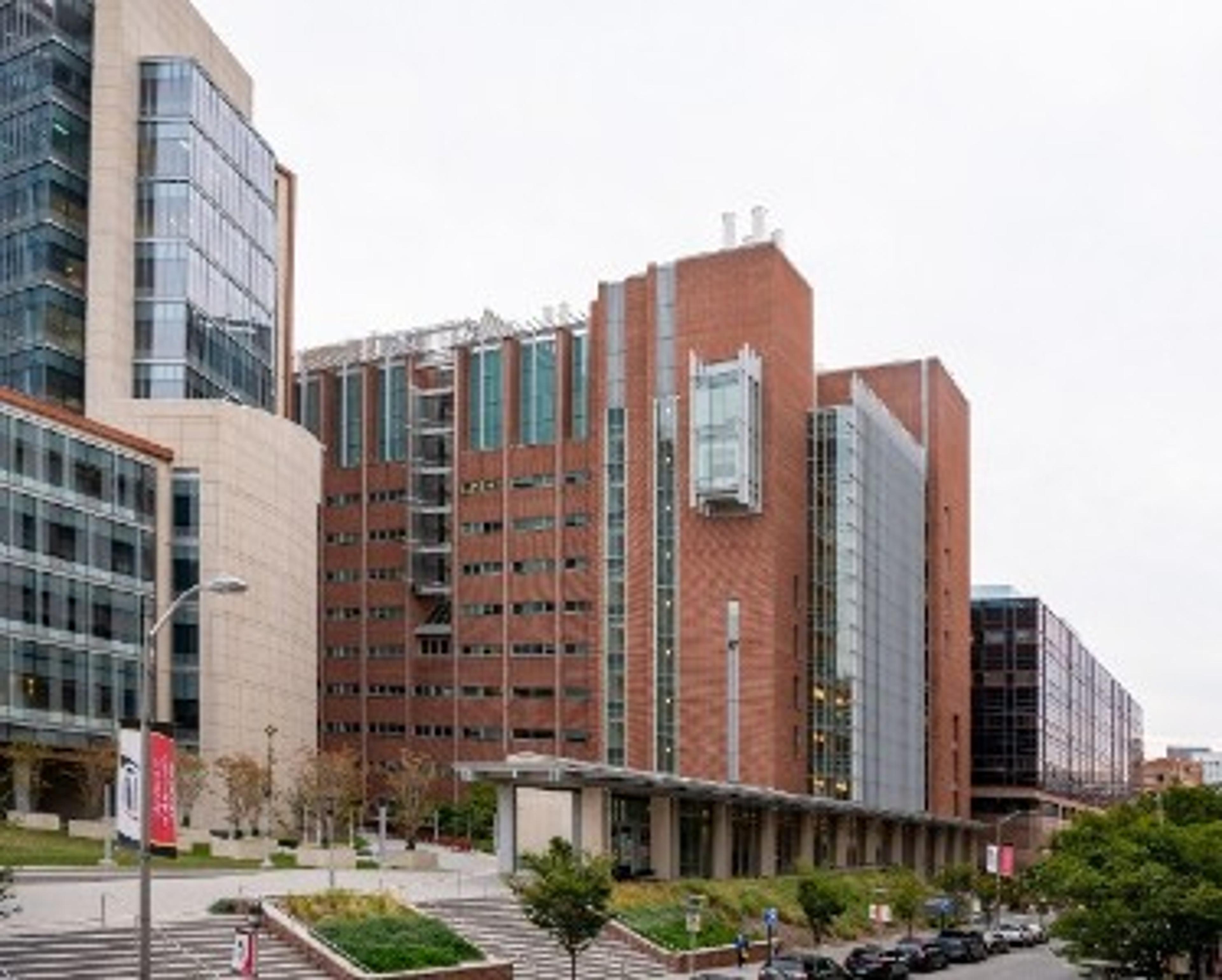
10. University of Maryland – Prosthodontics Graduate Program
The University of Maryland School of Dentistry offers an advanced 36-month Prosthodontics Graduate Program that awards both a certificate in Prosthodontics and a Master of Science (MS) in Dental Sciences. This program is designed to provide residents with comprehensive training in fixed, removable, implant, and maxillofacial prosthodontics. With a strong focus on complex interdisciplinary dental treatments, residents will gain exposure to a wide range of cases and cutting-edge techniques.
Key Features
- Accreditation: Fully accredited by the Commission on Dental Accreditation (CODA), ensuring the program meets the highest standards for dental education.
- Clinical Experience: The program emphasizes hands-on training with an abundance of patient cases. Residents will treat complex prosthodontic patients, including those requiring implants, crowns, bridges, dentures, and maxillofacial prostheses.
- Didactic Education: In-depth coursework is provided across various related disciplines, including oral pathology, craniofacial biology, implantology, and biomaterials. Residents also gain expertise in digital technologies such as CAD/CAM, implant restorations, and other emerging techniques.
- Research Component: Residents are required to complete a project in lieu of a thesis. This research project, combined with a thorough literature review, is an essential part of the program, helping residents make evidence-based clinical decisions.
- Interdisciplinary Care: The program strongly emphasizes collaboration with other dental specialties, offering residents the opportunity to engage in coordinated care across various fields, such as oral surgery, periodontics, and orthodontics.
- Preparation for Board Certification: The curriculum is designed to prepare residents for the American Board of Prosthodontics certification. This includes mock boards and review sessions to ensure readiness for the certification exams.
Application Process
- Application Deadline: August 15 for the upcoming academic year.
- Application Platform: Applicants must apply through the Postdoctoral Application Support Service (PASS) and the Postdoctoral Dental Matching Program (MATCH). A non-refundable processing fee of $85 ($145 for international applicants) is required.
- Required Documents:
- Three letters of recommendation.
- Official dental school transcript.
- Integrated National Dental Boards (INBDE) or National Board Dental Examination (NBDE) scores.
- Personal statement and 2x2 photo.
- For international applicants, an Educational Credential Evaluators (ECE) or World Education Services (WES) course-by-course evaluation of foreign transcripts and TOEFL scores (minimum 80 iBT) is required.
For more information on admissions, curriculum, and program specifics, including details about successful completion of the program, please visit the University of Maryland School of Dentistry Prosthodontics.
How to Get Into a Prosthodontics Residency
1. Complete Your Dental Degree (DDS or DMD)
Before applying to a prosthodontics residency program, you must first complete a dental degree. This can either be a Doctor of Dental Surgery (DDS) or Doctor of Dental Medicine (DMD), typically from an accredited dental school, and may also involve exposure to other specialties. Make sure to focus on excelling in your clinical skills and coursework during your dental education, as these will form the foundation of your application.
2. Gain Relevant Experience
Having strong clinical experience in prosthodontics will greatly enhance your application. Try to gain hands-on experience by working with prosthodontic specialists or participating in research related to prosthodontics. Clinical exposure to implants, crowns, bridges, and dentures is highly valued by residency programs. Gaining diverse clinical experiences, including direct patient treatment in various prosthodontic areas, is highly valued by residency programs.
3. Prepare for the Required Examinations
Most prosthodontics residency programs require successful completion of standardized exams such as the National Board Dental Examination (NBDE) or the Integrated National Board Dental Examination (INBDE). Some programs may also accept the Advanced Dental Admission Test (ADAT), though this is often optional.
4. Choose the Right Residency Program
When selecting a program, consider factors such as location, curriculum, faculty, and the type of clinical experience offered. It’s important to apply to programs that align with your career goals, whether that’s practicing in a clinical setting, teaching, or pursuing research.
5. Submit a Strong Application Package
Your application package is your chance to showcase your qualifications and passion for prosthodontics. The typical application requirements include:
- Application through PASS (Postdoctoral Application Support Service) and MATCH (Postdoctoral Dental Matching Program).
- Official Transcripts from your dental school.
- Letters of Recommendation: Usually, three letters from faculty members, mentors, or professional colleagues who can speak to your clinical abilities and character.
- Personal Statement: A well-written personal essay explaining why you want to specialize in prosthodontics, your career goals, and why you're a good fit for the program.
- National Board Dental Examination (NBDE) Scores or INBDE Scores.
- Supplemental Application Fee (if required by the school).
- Key Tip: Be thorough and professional when compiling your application materials. Personalize your letters of recommendation and personal statement to reflect your passion for prosthodontics and your long-term career vision.
6. Prepare for the Interview
If your application is successful, you will likely be invited for an interview. This is your opportunity to demonstrate your clinical knowledge, communication skills, and enthusiasm for the specialty. Be prepared to discuss your clinical experience, any research projects you've worked on, and how you plan to contribute to the field of prosthodontics.
7. Consider Financials and Logistics
Residency programs often provide stipends, but tuition fees may still apply. Be sure to understand the financial commitment involved in attending the program. Additionally, some programs may offer scholarships or benefits for in-state residents.
8. Keep Building Your Clinical and Research Skills
While waiting for acceptance into a residency program, continue building your clinical skills by gaining more hands-on experience in prosthodontics. If possible, participate in research related to prosthodontics or attend professional conferences to stay up to date with emerging trends and technologies in the field.
The Bottom Line
Choosing the right prosthodontics residency is an important step in your career. These programs provide the hands-on training, coursework, and research opportunities needed to become an expert in restoring and replacing teeth. Whether you want to work in a private practice, teach, or do research, a good residency program will help you build the skills to handle complex cases and stay updated with the latest dental technologies.
By picking a program that matches your goals, you’ll be ready to succeed in prosthodontics and make a positive impact in the field. Completing an advanced education program in a prosthodontics residency also prepares residents for specialty certification by the American Board of Prosthodontics, emphasizing the program's rigor and the importance of professional credentials.
Get Expert Help for Your Dental School Application
Looking to get into dental school? Our experienced admissions coaches can guide you through every step of the process, from crafting the perfect personal statement to preparing for interviews.
Related Resources:
- How Much Does It Cost to Go to Dental School (2025)
- How to Get Into Dental School: 5 Things to Do
- The 10 Best Orthodontist Schools for Residency Programs
- The Top 10 Dental Schools for Orofacial Pain
- The Top 10 Schools for Restorative Dentistry
- The Top 10 Schools for Geriatric Dentistry
FAQs
How long is a prosthodontist residency?
- Prosthodontist residency typically lasts 3 years. During this time, residents receive advanced clinical training, didactic courses, and research experience to develop expertise in all aspects of prosthodontics, including fixed, removable, implant, and maxillofacial prosthodontics.
Do prosthodontists make more than general dentists?
- Yes, prosthodontists generally earn more than general dentists. This is due to their specialized expertise in advanced restorative procedures. According to the U.S. Bureau of Labor Statistics, prosthodontists are among the highest-paid dental specialists. However, salary can vary based on factors like location, experience, and the type of practice they work in.
Is becoming a prosthodontist hard?
- Becoming a prosthodontist is challenging and requires significant dedication. The process includes completing a dental degree (DDS or DMD), followed by a highly competitive prosthodontic residency program. This residency involves intense clinical training, research projects, and preparation for board certification. The ability to manage complex patient cases, along with mastering advanced techniques, makes the path to becoming a prosthodontist rigorous but rewarding.
How much do prosthodontics residents make?
- Prosthodontics residents typically receive a stipend during their residency, which varies depending on the program and location. The average stipend ranges from $50,000 to $70,000 per year, though some programs may offer higher compensation or additional benefits. Keep in mind that this stipend is generally lower than what fully licensed prosthodontists earn after completing their residency.




